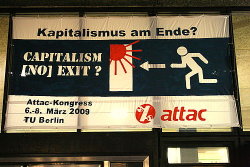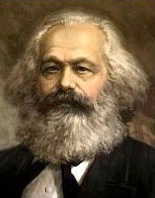 This article was published in: Tilman Baumgärtel (Ed.), A Reader on International Media Piracy, Amsterdam University Press, pp. 131-144. It is the English translation of Zur politischen Ökonomie von Kopie und Kopierschutz.
This article was published in: Tilman Baumgärtel (Ed.), A Reader on International Media Piracy, Amsterdam University Press, pp. 131-144. It is the English translation of Zur politischen Ökonomie von Kopie und Kopierschutz.
Why does copy protection exist? What is been protected against whom? The spontaneous answers to these simple questions refer to the prevailing forms of thinking in commodity society: The “intellectual property” just has to be protected against theft, just like everybody locks their door in order to prevent the television set from be carried away by “TV pirates”.


 Am letzten Sonntag, 8. März 2009, begaben sich ca. 50 Interessierte auf die »Suche nach dem Neuen im Alten« — so der Titel des
Am letzten Sonntag, 8. März 2009, begaben sich ca. 50 Interessierte auf die »Suche nach dem Neuen im Alten« — so der Titel des 